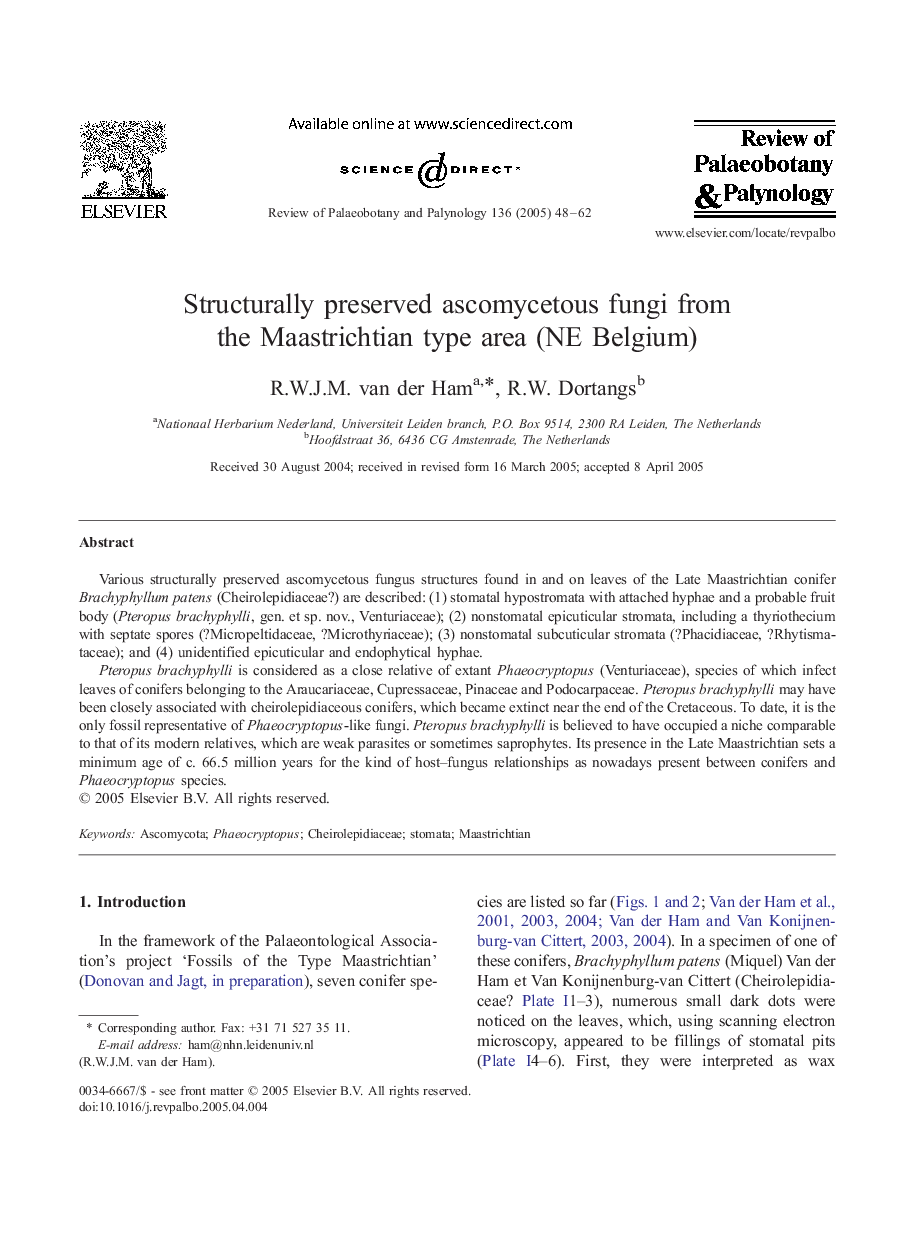| Article ID | Journal | Published Year | Pages | File Type |
|---|---|---|---|---|
| 10122056 | Review of Palaeobotany and Palynology | 2005 | 15 Pages |
Abstract
Pteropus brachyphylli is considered as a close relative of extant Phaeocryptopus (Venturiaceae), species of which infect leaves of conifers belonging to the Araucariaceae, Cupressaceae, Pinaceae and Podocarpaceae. Pteropus brachyphylli may have been closely associated with cheirolepidiaceous conifers, which became extinct near the end of the Cretaceous. To date, it is the only fossil representative of Phaeocryptopus-like fungi. Pteropus brachyphylli is believed to have occupied a niche comparable to that of its modern relatives, which are weak parasites or sometimes saprophytes. Its presence in the Late Maastrichtian sets a minimum age of c. 66.5 million years for the kind of host-fungus relationships as nowadays present between conifers and Phaeocryptopus species.
Related Topics
Physical Sciences and Engineering
Earth and Planetary Sciences
Palaeontology
Authors
R.W.J.M. van der Ham, R.W. Dortangs,
